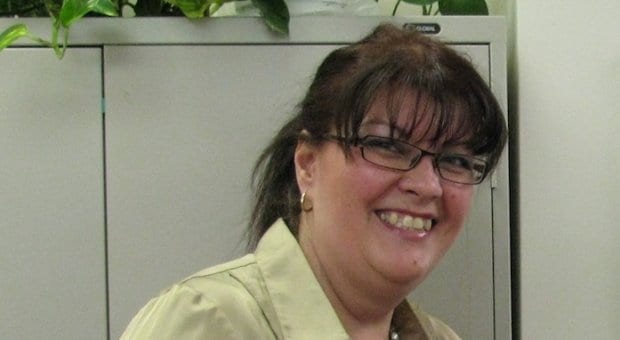AIDS Awareness Week kicks off in Ottawa on Nov 25 with a Red Ribbon Blitz and continues with events all week leading up to World AIDS Day.
The AIDS Committee of Ottawa (ACO) arranged for volunteers from numerous agencies and community groups to descend on the capital during the lunch hour on Nov 25 to hand out red ribbons — the international symbol of AIDS awareness — and talk about HIV/AIDS.
The week will include community gatherings, workshops, a movie night, TED talks and local performances. The week also includes the Canadian AIDS Society’s sixth annual World AIDS Day gala, on Nov 28.
“HIV/AIDS still exists; it’s still here,” says Khaled Salam, ACO’s executive director. “I think that it’s extremely important to commemorate the history of HIV/AIDS and recognize the lives that have been lost. It’s also important to acknowledge the people who are still very bravely and courageously fighting the fight against HIV/AIDS today.”
Salam, who had been the ACO’s acting executive director since Nov 2011 during Kathleen Cummings’s extended sick leave, officially became executive director on Nov 13 of this year.
Monique Doolittle-Romas, CEO of the Canadian AIDS Society, will be the keynote speaker at the World AIDS Day gala, which will be attended by NDP MP Olivia Chow and Rona Ambrose, the federal minister of health.
“Currently, I get the feeling there’s this feeling of complacency,” Doolittle-Romas says. “People aren’t as concerned — the general Canadian, the average Canadian isn’t as concerned. When you get the minister of health and Olivia Chow, who are willing to give of their time and attend a gala and show their support, it sends an important message that people are paying attention and HIV/AIDS is a priority for politicians in this country.”
The fundraising gala brings together people from the corporate sector, politicians, people living with HIV/AIDS and people from local and national organizations, she says.
“It’s a night where we can sit back and talk about all of the work that we’ve accomplished over the last year as a community,” Doolittle-Romas says. “It’s an opportunity for some politicians and the corporate sector to celebrate our successes and to hear about our challenges and the work that still needs to be done.”
Despite significant medical advances and increased knowledge, people living with HIV/AIDS still face many barriers, Salam says.
“The biggest barrier still today is the stigma and the discrimination that’s attached to HIV/AIDS,” he says. “The criminalization of HIV nondisclosure is also a huge barrier. Lack of access to information and resources when it comes to HIV/AIDS is also a barrier. Lack of fair and equitable access to healthcare, social services and other services when it comes to HIV/AIDS are also barriers.”
One of the ACO’s marquee events is the gay men’s health forum, taking place on Nov 27. With gay men being one of the most affected communities when it comes to HIV/AIDS, the ACO wants to promote gay men’s health from a holistic approach, Salam says.
Locally, nationally and globally, people who are marginalized face an uphill battle in accessing social and health services, which contributes to their being disproportionately affected by HIV/AIDS, he says.
“There are a lot of people living in Ottawa with immigration issues, people who either have refugee status or no status and are not able to really access services,” Salam says. “People who are street-involved, people who are homeless, people who experience violence, racism and homophobia are not able to easily access in a fair and equitable way the services that those who are more privileged in our society are able to.”
See a full list of the ACO’s AIDS Awareness Week events.
For tickets to the Canadian AIDS Society’s sixth annual World AIDS Day gala on Nov 28, see cdnaids.ca/world-aids-day-gala.


 Why you can trust Xtra
Why you can trust Xtra


